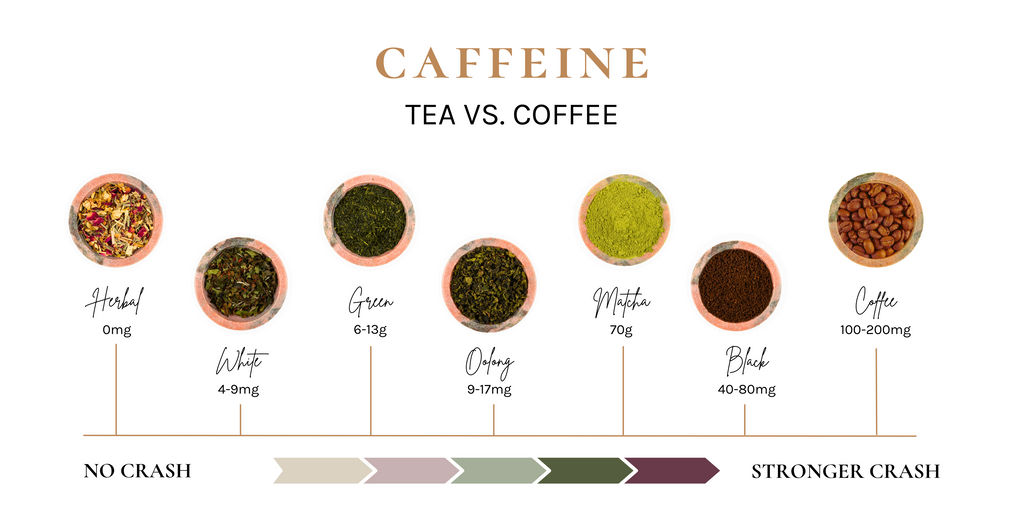The Great Caffeine Debate: Tea vs. Coffee

Ah, caffeine - that magical molecule that has the power to turn us from groggy zombies into productive members of society. For many, it's the only way to start their day. Caffeine is everywhere. It’s part of almost all people's daily routines. But when it comes to the caffeine content in tea and coffee, are all caffeinated beverages created equal? We’re here to explore the differences between tea and coffee - in terms of caffeine content - and hopefully leave you with a clearer understanding of how caffeine fits into your daily life.
Caffeine Content
In the caffeine showdown, coffee is the clear leader on the board. On average, an 8-ounce (240 ml) cup of drip-brewed coffee contains about 95 milligrams of caffeine. Tea, on the other hand, plays it cool. A similar-sized cup of black tea typically contains around 40-70 milligrams of caffeine. But here's where it gets interesting: the type of tea and brewing method matters. In terms of caffeine content, herbal tea has the least with 0 mg, followed by white tea at 4-9 mg, green tea ranging from 6-20 mg, and the heavyweight matcha boasting a substantial 70 mg per serving.
Caffeine Release
The way caffeine is released into your system differs between tea and coffee. Coffee is like that friend who's always ready to party - it hits you with a caffeine surge within minutes of consumption. It's the swift kick in the morning pants you need. This can be a blessing for those after an instant wake-up. However, it can also lead to jitteriness or a little anxiety in some people and most likely it will cause a crash at some point after.
Tea, on the other hand, is a more patient partner. It releases caffeine gradually, offering a smoother and more sustained lift in energy. This gentler approach can help avoid the abrupt crashes associated with coffee. Additionally, tea contains an amino acid called theanine, which has calming properties and works together with caffeine to create a balanced and focused state of alertness. The result is often described as a more mellow and sustained form of energy.
What Makes Tea Special?
Tea has its own unique ingredients that set it apart in the caffeine battle. One of these is theobromine (pronounced thee-oh-BROH-meen), which adds to the calming and alert feeling you get when you sip tea. Alongside theobromine, there's theanine (pronounced tee-AH-neen), a special amino acid known for making you feel calm. Theanine works together with caffeine and theobromine to give you a balanced and focused kind of energy. The end result? Tea gives you a gentle and long-lasting boost, making it a standout in the world of caffeine.
Parting Words
Ultimately, the choice between tea and coffee should align with your individual preferences, lifestyle, and sensitivity to caffeine. But, by understanding the differences and effects of caffeine in tea and coffee, you can make choices that enhance your mood and enrich your daily life. So, whether you're Team Coffee or Team Tea, or happy playing the field, here's to caffeine!
